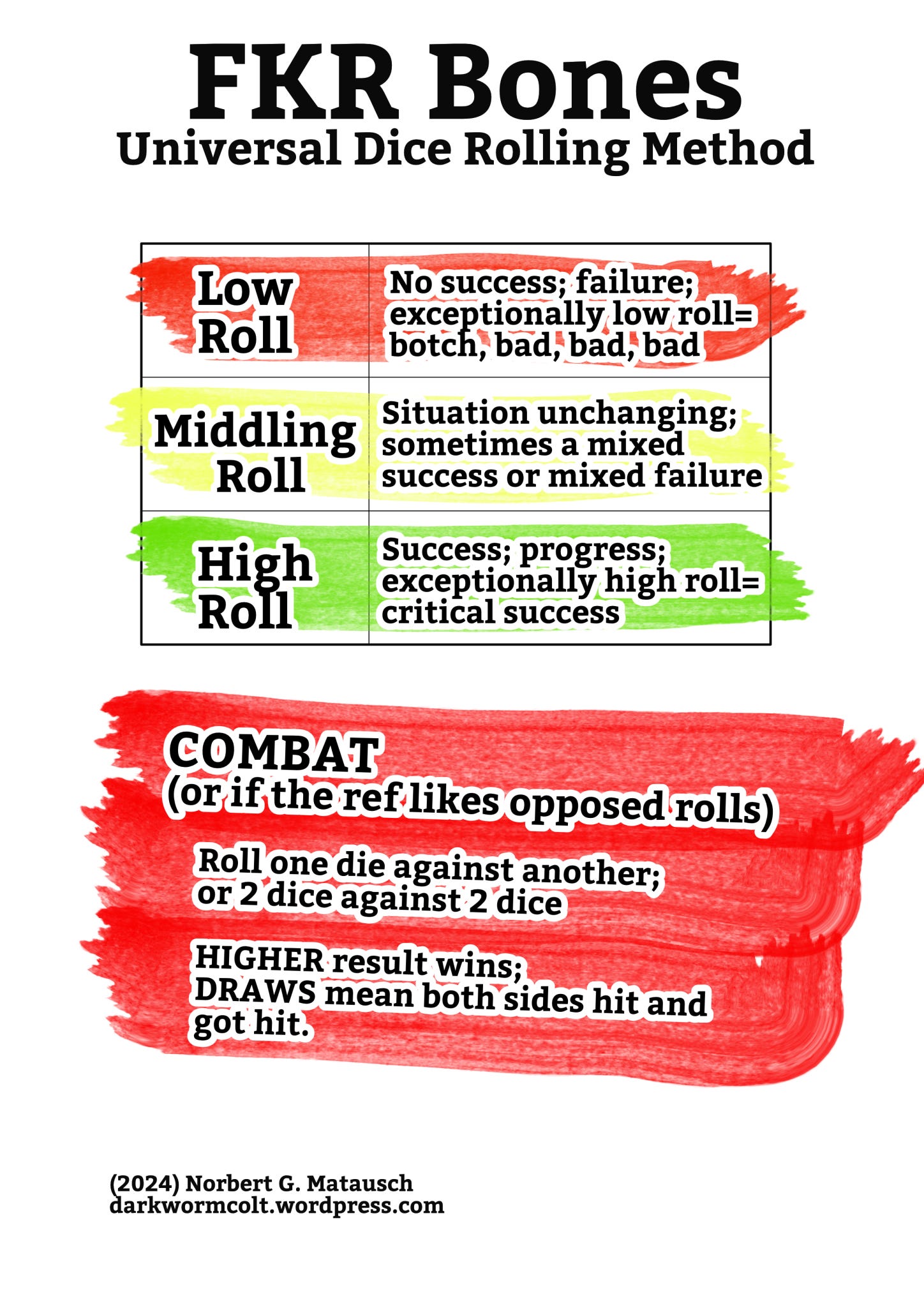This article contains affiliate links, meaning I get a commission if you make purchases using these links, at no cost to you.The terms OSR and NSR get thrown around a lot, most of us have heard these. On the other hand, FKR (Free Kriegsspiel Revolution) is a term that has entered the rpg space but I’m not sure we all know what it is.
Even if you don’t want to run a strict FKR game, you can take these principles and use them for whatever you are GMing, from Mothership to Old School Essentials.
Naming
Why is it called Free Kriegsspiel Revolution?
Short answer: Free Kriegsspiel (not FKR) was a wargame that Prussian military generals used to train other generals. The term free is in reference to the lack of rules.
Rather than attempting to have comprehensive rules that simulated the complexities of warfare, a more experienced general would arbitrate the game between the two opponents, using their experience to determine the outcome of player actions.
In RPG terms, this is playing a game where the primary method of determining what happens next is squarely in the GM’s hands, not the rules.
World = rules
FKR uses the idea that the game world dictates what can and cannot happen, or what can be attempted within the game. If the GM understands the world sufficiently, they can make judgements as to what happens when players take actions without the need for mechanics (in fact, they can do a better job than a game mechanic).
In other words: You don’t need mechanics to tell you that a Hobbit can’t throw a fireball in Tolkien’s Middle Earth.
Mork Borg plays into this idea a bit, outlining the world first so you understand what does and doesn’t make sense for the setting.
High trust
The nature of FKR is that the players have to trust the GM’s judgement. It requires GMs to communicate the world well. Likewise players shouldn’t saturate gameplay with unreasonable requests.
The pay off is high: GMs get to run worlds that don’t yield to game mechanics above their own worldbuilding, and players can try anything subject to the adjudication of the GM.
MurkMail is a reader supported publication. Join our premium tier and receive a discussion article, chunk of prose, and a d6 table twice a month.
In our last Premium Issue talked about a bad session that I ran, I wrote a long description of a scary mountain, and filled a table with short descriptions of cairns. Next issue I talk about my thoughts after writing the article on crunch, describe a Countess’ sword and fill a table with miserable swamp landmarks.
Concreteness
Hit points and other abstractions like character levels have no place in FKR. Concrete, in-world facts are the building blocks of the game. Your character might advance by being taught a sword style by a famous warrior, or by acquiring the deed to an estate.
A ‘character sheet’ often looks like a list of ‘in-world facts’, which expands over time, rather than unlocking feats or advancing abstract numbers.
Mechanics
There is usually a simple dice mechanic paired with the FKR style, like this one from FKR guru Norbert Matausch.
This is barebones, it’s a simple decision mechanism that the GM can employ when the outcome is unclear.
Some FKR games do incorporate a few more rules, but they remain very light (often only taking up one page).
Many FKR GMs craft a specific mechanic like this that suits the tone of their world.
That’s it
That’s the quick summary of FKR. I don’t run a ‘pure’ FKR game, but I inject the idea of world > rules and high trust GMing into my games. It’s a really interesting gaming style to explore - either to play or to scavenge for ideas.
Don’t forget to check out MurkMail Premium.
If you like this article, please like and share! Commenting helps out MurkMail a lot and I love chatting with you folks. Come chat on the discord.
Recommendations
YouTube: Earthmote dives into reputation mechanics! Inspired by Luke Gearing’s ideas and also our article on Honour Tables, Earthmote adds his own twist to d100 reputation tables and gives background on how useful they are. It’s a great watch!
Blog: I found this entry on Silverarm Press’ blog which talks about having a campaign deadline. It’s a good and compact survey of the issue, I’m not on board with all of the tactics (I find connecting adventure sites doesn’t suit me), but there’s a lot of good ideas here. It’s inspired me to explore the topic and write something on it myself.




It’s not that different from Amber Diceless. I played in one game of that. The GM knew the Amber books by heart. I’m sure he did a good job. Unfortunately, I didn’t know the books at all, so I was always at a loss to figure out the best course of action. It wasn’t for me. I would imagine that players need a good bit of grounding in the setting for FKR to work well. Or maybe a generic fantasy or real world setting.
This is how I prefer to run games at my table. Thanks for sharing!